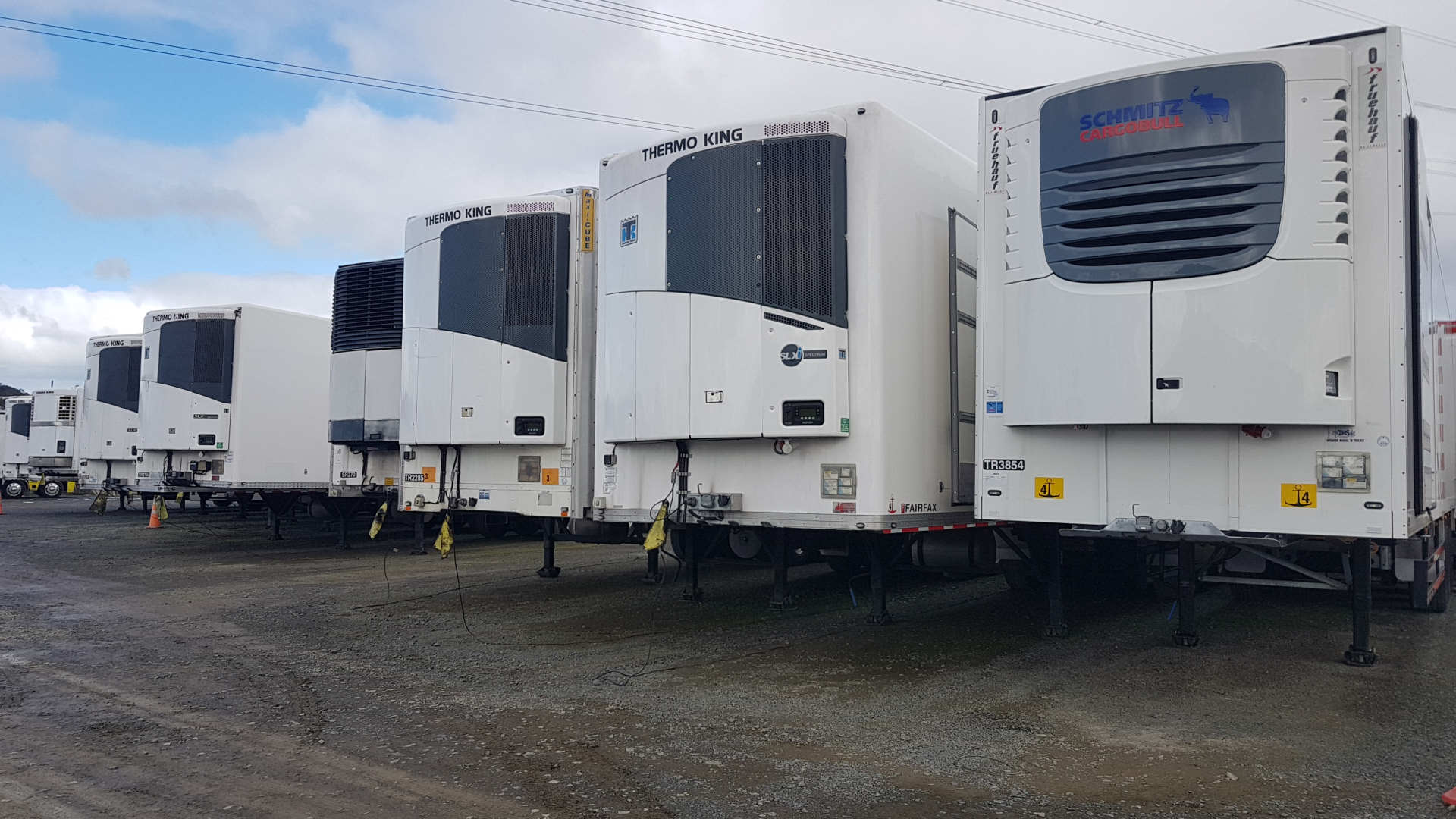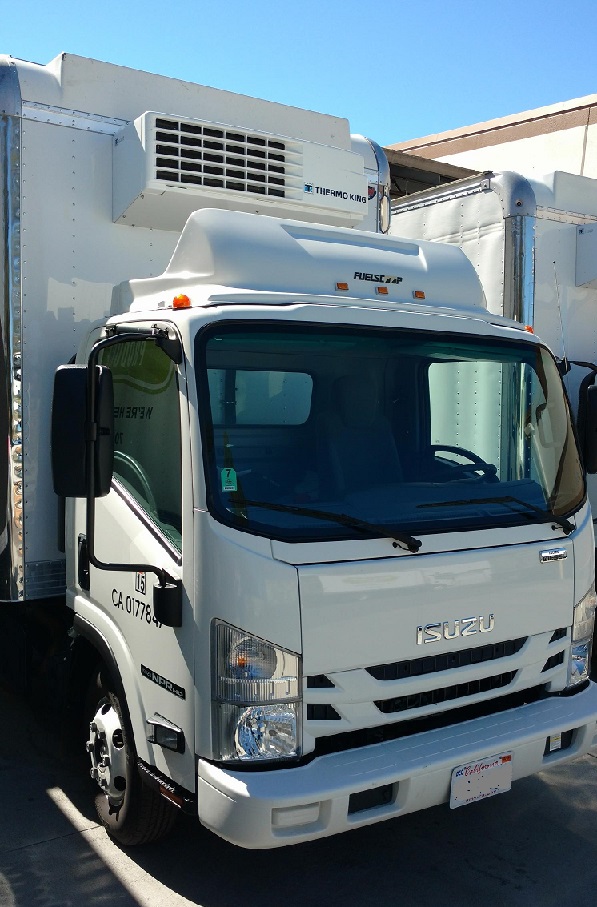Refrigerated Transportation Thermo King: The Ultimate Option
Refrigerated Transportation Thermo King: The Ultimate Option
Blog Article
Leading Technologies in Transportation Refrigeration: Enhancing Effectiveness and Safety
The landscape of transportation refrigeration is undergoing considerable makeover, driven by developments intended at boosting both performance and safety. Trick developments such as smart temperature level tracking systems, green cooling agents, and automated route optimization are critical in dealing with the industry's difficulties. These technologies not only make certain the stability of temperature-sensitive items but also add to sustainability efforts. As these technologies remain to develop, it is important to discover their effects on operational practices and regulative conformity, prompting a more detailed exam of how they reshape the future of transportation refrigeration.
Smart Temperature Level Keeping An Eye On Systems
In the world of transportation refrigeration, smart temperature surveillance systems have emerged as an essential development for making certain the honesty of temperature-sensitive goods. These innovative systems leverage Internet of Points (IoT) innovation to supply real-time data on temperature level variations, making it possible for operators to maintain optimum conditions throughout the supply chain. By constantly tracking the temperature level of cooled containers and automobiles, business can promptly recognize deviations that may compromise product quality.

Moreover, smart tracking systems often integrate automated notifies and notifications, allowing stakeholders to react immediately to any kind of potential issues. This positive strategy not only decreases the threat of wasting however also boosts conformity with regulative standards controling food safety and security and pharmaceutical transport.
The integration of information analytics within these systems also facilitates anticipating maintenance, aiding operators to predict potential equipment failures before they take place. This capability lowers downtime and enhances operational effectiveness, eventually leading to cost financial savings.
Eco-Friendly Refrigerants
Smart temperature monitoring systems play a crucial duty in maintaining product top quality, but the efficiency of transport refrigeration additionally pivots on the selection of refrigerants made use of. In comparison, arising options like hydrocarbon-based cooling agents and hydrofluoroolefins (HFOs) existing lower GWP choices, offering both performance and sustainability.
These eco-friendly refrigerants not only decrease environmental influence however additionally line up with global policies intended at terminating harmful materials. Their fostering can result in improved energy performance, eventually lowering operating expenses for transport refrigeration systems. The use of natural refrigerants, such as ammonia and carbon dioxide, has actually gotten grip due to their excellent thermodynamic homes and lower environmental footprint.
Investing in environmentally friendly refrigerants is not just a governing compliance measure; it represents a critical choice that boosts brand online reputation and fosters client commitment. reefer trucks thermo king. By focusing on lasting practices, companies can contribute to a greener future while guaranteeing the integrity of transferred items
Advanced Insulation Materials
Utilizing innovative insulation products is critical for maximizing transport refrigeration systems, as they significantly boost power efficiency and keep constant temperature level control. Typical insulation techniques typically fall brief in stopping thermal transfer, resulting in increased energy intake and rising and fall temperature levels within chilled compartments.
Emerging materials such as vacuum cleaner protected panels (VIPs) and aerogels supply exceptional thermal resistance, enabling thinner accounts without jeopardizing efficiency. VIPs, as an example, use a vacuum cleaner layer to reduce conductive and convective warmth transfer, making them suitable for space-constrained applications. Aerogels, known for their light-weight and porous structure, offer exceptional insulation while significantly lowering total system weight.
Moreover, integrating phase change materials (PCMs) into insulation systems can even more stabilize temperatures throughout transit. These materials take in and release thermal energy, efficiently buffering versus outside temperature variants.
The combination of these advanced insulation materials important site not just lowers the functional expenses connected with energy usage yet additionally extends the service life of temperature-sensitive goods. As the transport refrigeration sector continues to evolve, the adoption of cutting-edge insulation innovations will certainly be pivotal in boosting both performance and safety and security in refrigerated transport.
Automated Path Optimization
The efficiency of transport refrigeration systems is substantially enhanced with automated course optimization, which leverages advanced algorithms and real-time information to determine one of the most reliable paths for delivery. By assessing various factors such as traffic patterns, weather, and distribution windows, these systems can substantially reduce traveling time and fuel usage.
Automated route optimization decreases human mistake and subjective decision-making, which can cause ineffectiveness. This modern technology enables fleet supervisors to designate resources a lot more successfully, ensuring that cooled products maintain their called for temperature throughout the trip. By optimizing routes, business can additionally boost client satisfaction via timely distributions.
In addition, automated systems can adjust to unanticipated circumstances, such as roadway closures or sudden website traffic spikes, permitting dynamic rerouting. This versatility not just protects the stability of temperature-sensitive items but also adds to overall operational performance.
Implementing automated path optimization can result in substantial price savings while minimizing the carbon impact related to transport. As organizations progressively focus on sustainability, this development stands apart as a crucial component in modern-day transport refrigeration, lining up functional goals with environmental responsibility. Inevitably, automated route optimization represents a significant advancement in the mission for performance and security in transport refrigeration.

Real-Time Information Analytics
Automated course optimization significantly take advantage of the integration of real-time data analytics, which supplies important understandings right into the performance of transportation refrigeration systems. By utilizing real-time information, transportation drivers can keep track of temperature level variations and tools performance, ensuring that disposable products are preserved within required specifications throughout transit. This proactive technique not just boosts the quality of the transferred items yet additionally mitigates the danger of perishing and loss.

Along with enhancing efficiency, real-time analytics improves safety by guaranteeing compliance with governing standards for temperature level control. This not just secures public health but also fortifies a business's online reputation - reefer trucks thermo king. As the transportation refrigeration market progresses, the combination of real-time information analytics arises as a cornerstone for driving advancement, sustainability, and functional quality
Final Thought
In conclusion, the developments in transportation refrigeration substantially boost both efficiency and safety and security within the sector. Jointly, these innovations stand browse this site for a critical evolution in transport refrigeration, guaranteeing compliance with regulative criteria and promoting a greener future.
The landscape of transport refrigeration is undergoing substantial check it out change, driven by advancements intended at enhancing both performance and safety.Smart temperature level tracking systems play an important duty in keeping item quality, however the efficiency of transport refrigeration also hinges on the choice of refrigerants used. Their fostering can lead to enhanced power effectiveness, ultimately lowering operating prices for transportation refrigeration systems. Inevitably, automated course optimization stands for a substantial advancement in the mission for effectiveness and safety and security in transport refrigeration.
In final thought, the developments in transportation refrigeration significantly enhance both performance and safety and security within the industry.
Report this page